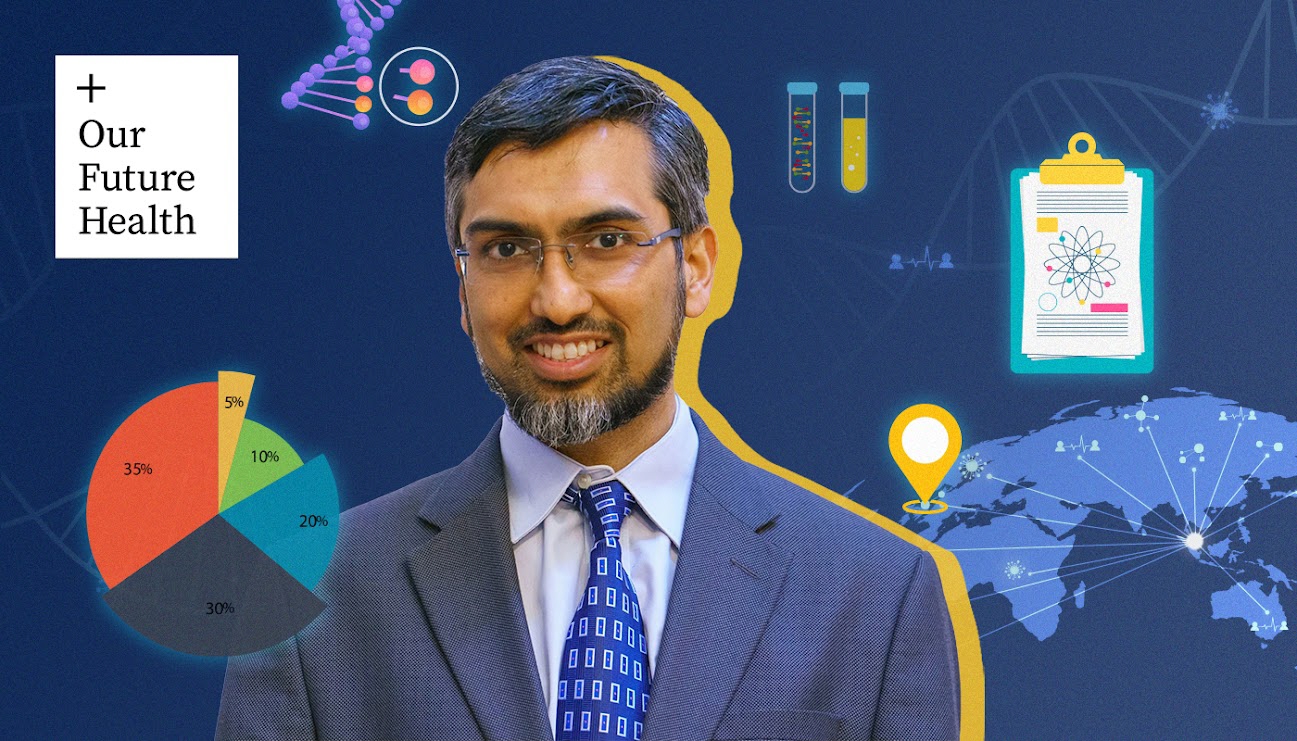Our Future Health: Reimagining Prevention for the NHS

As the saying goes, prevention is better than cure. But how do you deliver preventive care at scale—for 68 million people—in a way that is evidence-based and cost-effective? The UK’s Our Future Health[1] research project is aiming to crack this puzzle.
Many would have heard of the National Health Service (NHS), the United Kingdom (UK)’s public healthcare system—a single-payer system which offers comprehensive and universal medical services to UK residents at all stages of life.
Yet, according to Dr Raghib Ali, Chief Executive and Chief Medical Officer of Our Future Health, the NHS currently functions more like a national ‘sickness’ service. He said, “Typically, we only see patients after they’ve developed symptoms or experienced a life-threatening episode such as stroke. At which point, it’s usually too late to prevent disease onset or even restore patients to good health.”
He continued, “What we want to do with Our Future Health is change our current health model—from focusing on treating late-stage disease to pivoting and sharpening our efforts on early detection and intervention. In the process, we hope to reduce disease burden on the NHS and society.” Through combining and analysing health information such as genetic data and NHS medical records of participants in the programme, the aim is also to leverage these insights to develop screening tests and interventions for high-risk individuals.
Gathering the World’s Largest Cohort
Our Future Health began in October 2022 with the goal of recruiting five million adult participants aged 18 and above from across the UK. As of January 2025, over two million participants have signed up, and more than a million blood samples have been collected. It is the largest cohort study of its kind in the UK and the world[2].
While the participation rate and support for the programme is promising, Dr Ali emphasised that Our Future Health’s scale goes beyond mere numbers. To better reflect the UK’s diverse and multi-ethnic society, the team is casting the net wide—to ensure ethnic, socioeconomic, and geographical representation. The aim is to recruit at least 10% of its cohort—about half a million—from ethnic minority communities.
Dr Ali said, “Health outcomes can look very different for people from different backgrounds. For instance, South Asians are at higher risk for diabetes[3] while men of African descent are more likely to develop prostate cancer[4]—but we don’t exactly know why.” With a diverse cohort, researchers will be able to track disease incidence and progression for underrepresented groups better.
In addition, Our Future Health’s planned scale offers unique opportunities for studying rare diseases. “It’s often challenging to obtain enough patient data with small cohort sizes. There are also limitations to combining data from multiple cohorts—which could have different data collection parameters or follow-up methods,” Dr Ali explained. “By establishing a single, comprehensive resource, I believe we lay the groundwork for transformational discoveries.”
Establishing a Positive Feedback Loop
Even as recruitment efforts continue, Dr Ali and his team have already started deliberating the details for the next stage—returning feedback to participants starting from 2025. “That’s our core premise,” Dr Ali said. “Providing participants information about their health risks—so they can take action and change the course.”
Participants currently receive basic measurements and feedback at the end of their initial appointment with Our Future Health, such as blood pressure, heart rate and cholesterol levels. Looking ahead, the plan is to follow-up with more information on their disease risk based on lifestyle and genetic factors, and recruit participants for clinical trials on potential interventions.
However, before that can happen, there are various considerations. Top of mind for Dr Ali is to prevent any additional strain to the NHS. “We want to avoid overwhelming NHS staff with patients seeking clarification on Our Future Health feedback. At the same time, we want to ensure that any preventive health initiatives we introduce should integrate with—and not overburden—existing clinical workflows.”
Discussion is also underway for the conditions to focus on—for a start. The team is looking at diseases such as diabetes and colorectal cancer which already have age-based screening programmes—to study the utility and cost-effectiveness of introducing a risk-stratified approach. Participant views are also being sought as to the type of information they are keen to receive.
Embarking on the Roadmap to Global Health
With the target of completing recruitment by 2028, Our Future Health is in the early days. “It could take decades to fully realise the extent of Our Future Health’s potential—where we successfully reduce overall usage of the healthcare system through early intervention,” Dr Ali explained.
While Our Future Health’s full roadmap stretches into the years ahead, he hopes to see outcomes as soon as 2035—establishing new evidence-based approaches to tackling conditions such as diabetes, heart disease and common cancers.
But Dr Ali has a bigger vision for Our Future Health. He said, “Chronic illnesses, multimorbidity, ageing populations—these are pressing problems not only for the UK but also many countries around the world. Novel interventions from Our Future Health data could therefore potentially transform global healthcare systems.”

